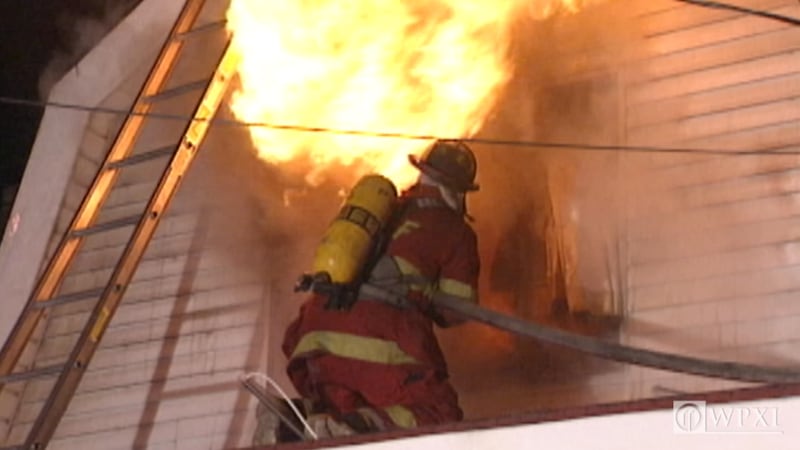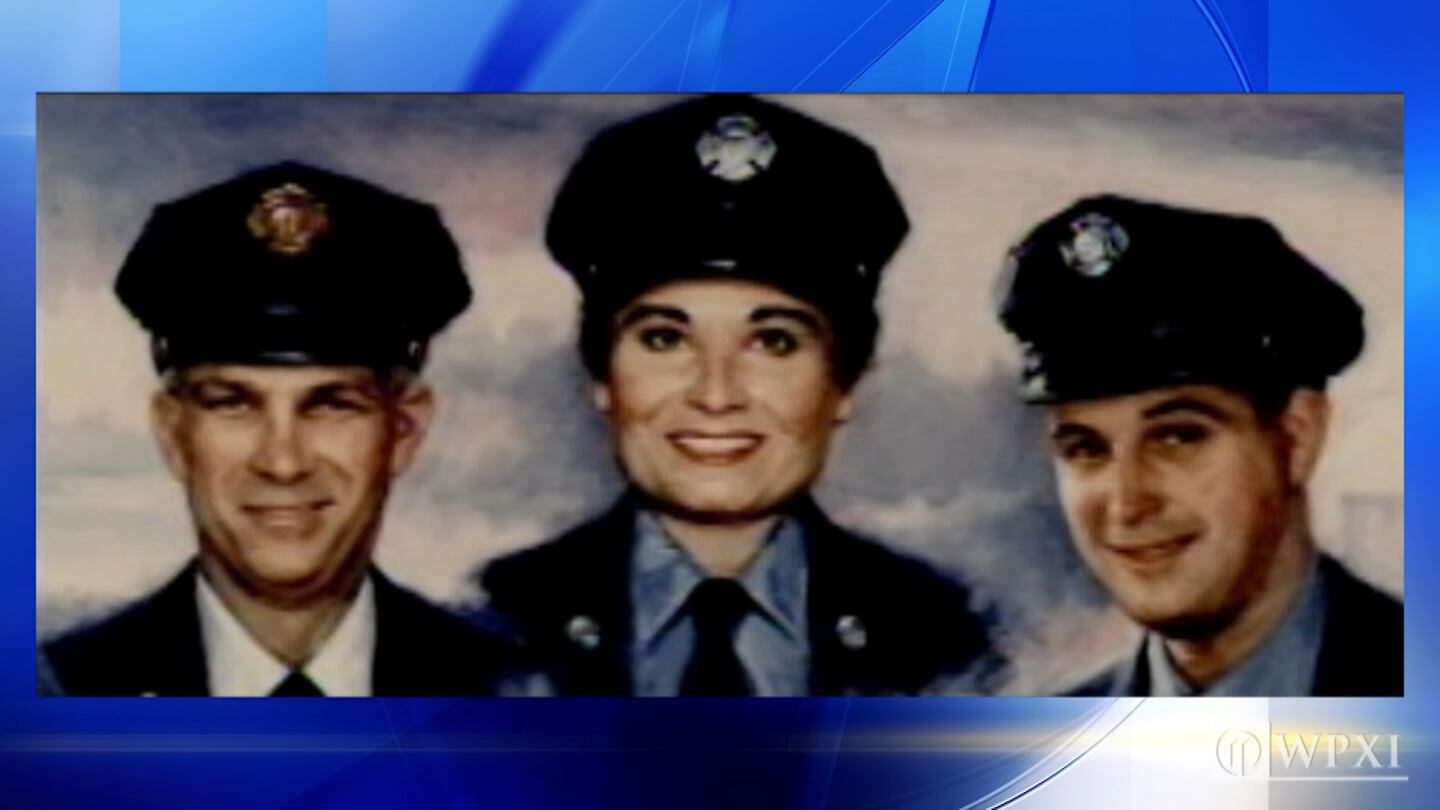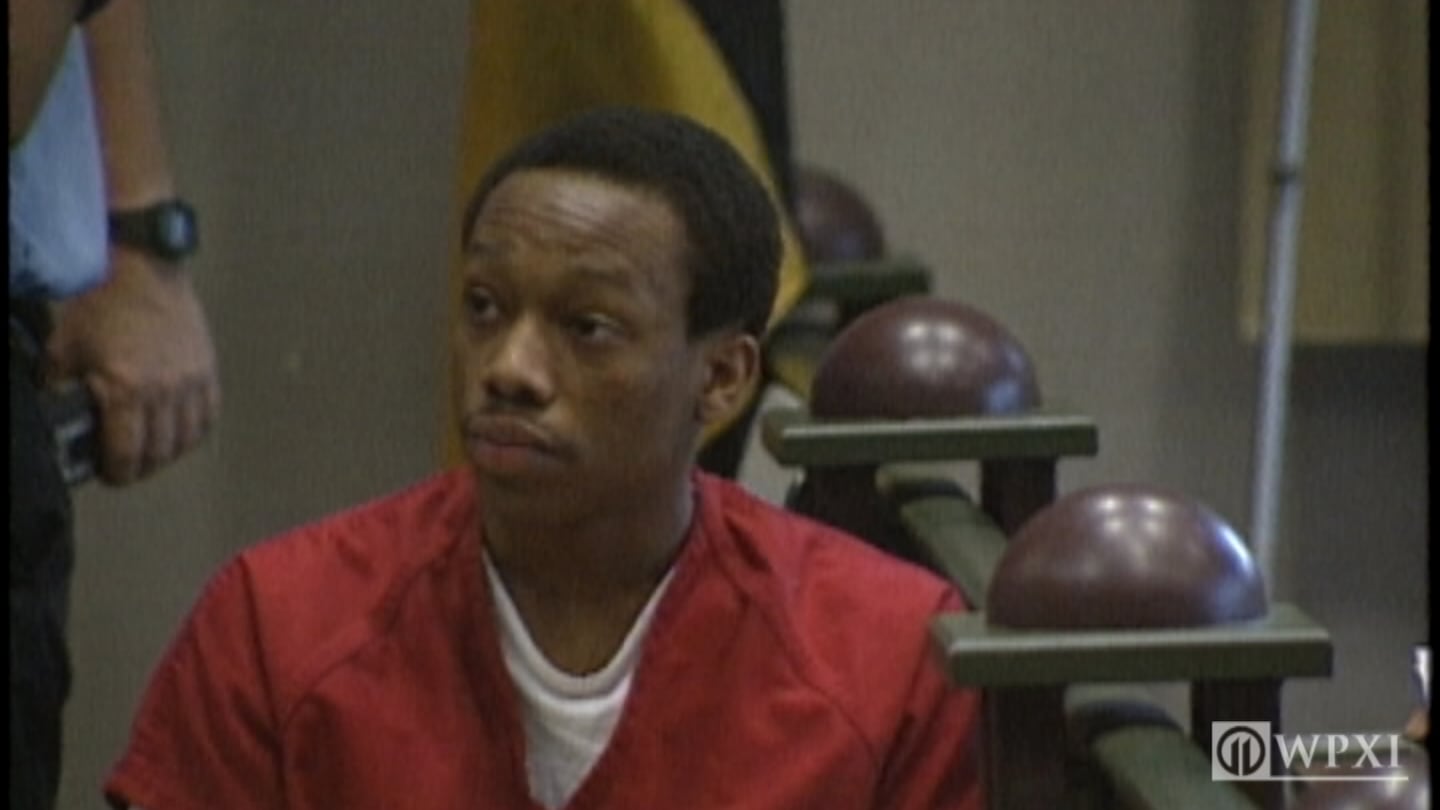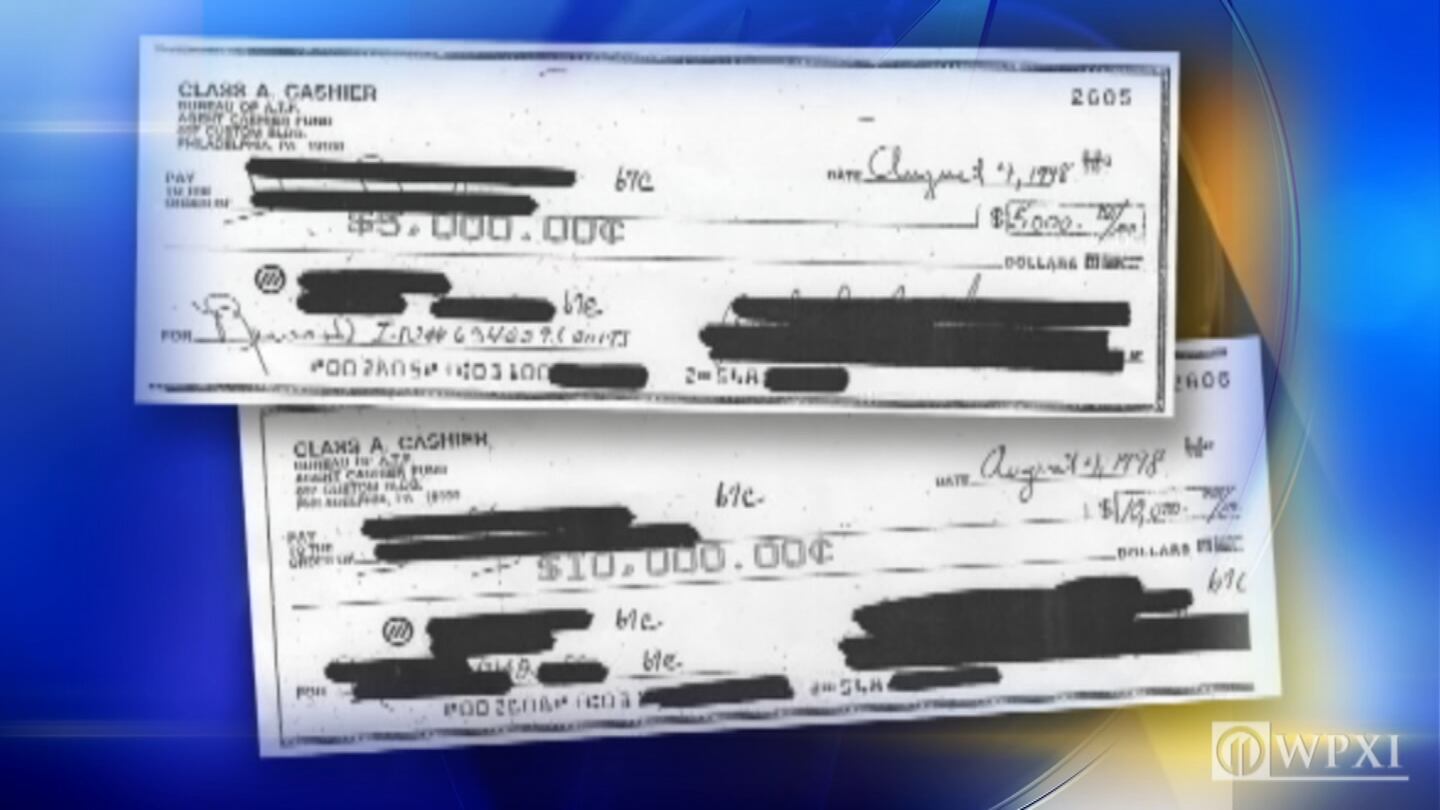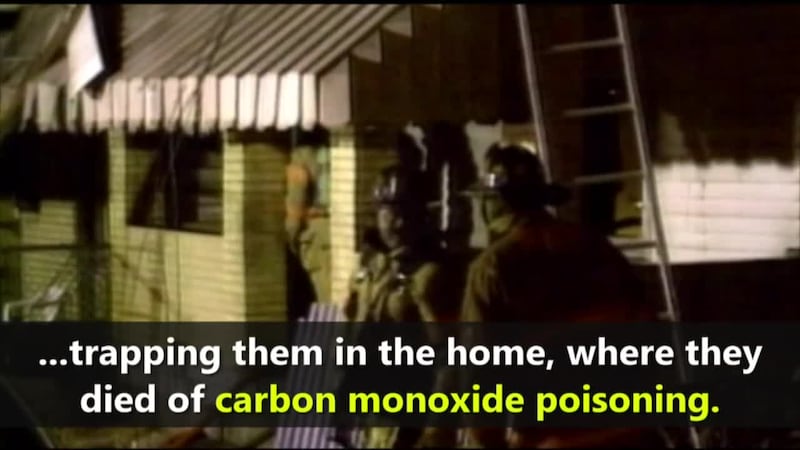PITTSBURGH — Today marks 26 years since the East Hills fire. Three firefighters died that heartbreaking Valentine’s Day in 1995.
Capt. Thomas Brooks arrived on the scene with Engine 17 and Patricia Conroy and Marc Kolenda responded with Engine 8 just after midnight to the home on Bricelyn Street. They became separated from their other crew members while inside the burning home. A stairwell collapsed and they became trapped.
The six-member family that lived in the rented home escaped without any injuries.
Investigators determined that the windows of the home were covered in plastic, which held the smoke inside and made it difficult for the firefighters to see and find a way to escape. The firefighters were found with a ruptured hose and overcome by carbon monoxide, possibly due to malfunctioning air masks. The fire department changed training procedures and upgraded equipment as a direct result.
All of the deceased firefighters were experienced, with years of service. Conroy was the first female firefighter to be killed in the line of duty. Kolenda was a second-generation Pittsburgh firefighter and engaged to be married. Brooks was married with two children.
Gregory Brown was found and arrested in Billings, Montana, for setting the fire. Investigators said the then 17-year-old burned down his mother’s home for the insurance money. His mother, Darlene Buckner, was convicted for insurance fraud and sentenced to probation.
TRENDING NOW:
Brown was convicted of three counts of second-degree murder and given three life sentences. But after 20 years in jail, Brown was released in November 2016 and he was granted a new trial. His lawyers claimed he had been a victim of prosecutorial misconduct.
New evidence discovered by the Innocence Project showed ATF agents promised to pay two key witnesses thousands of dollars in rewards to testify against Brown, a fact the jury didn’t know.
Brown maintains his innocence, telling Channel 11 upon his release that, “I’d like to thank the firemen for saving my family. They did their job. But I want everyone to know that, especially the firemen, me and my family, we had nothing to do with this.”
#BREAKING: After 20 yrs Greg Brown is free while he awaits a new trial. He spoke to the media moments ago, maintaining his innocence. #WPXI pic.twitter.com/6pG5jg8gis
— Aaron Martin (@WPXIAaronMartin) November 18, 2016
Brown was not retried in state court as authorities opted to take him to trial in federal court instead. His lawyers have argued that a new trial constitutes double jeopardy and is a violation of the Fifth Amendment because federal authorities participated in the initial trial.
U.S. District Judge David Cercone told the Post-Gazette that defendants can be tried in both state and federal systems under a legal concept called “dual sovereignty.”
In April 2021, a three-judge panel of the 3rd U.S. Circuit Court of Appeals upheld Judge Cercone’s ruling that a retrial of Brown in federal court would not violate his double jeopardy rights.
Circuit Judge David Porter wrote: “Brown’s claim fails for a more obvious reason: Retrying a defendant because the conviction was reversed for trial error is not a second jeopardy. Regardless of whether it proceeds in state or federal court, Brown’s second prosecution does not violate the Double Jeopardy Clause.”
The case now returns to Judge Cercone.
Dave Fawcett of Reed Smith, one of Brown’s lawyers, said in an email that the latest ruling doesn’t “change the fact that Mr. Brown is an innocent man who spent 20 years in jail because of government misconduct. There was no crime committed. There was no arson. Only bad testing by government agents combined with illegally concealed witness payments allowed the government to even claim this was a crime in the first place.”
© 2020 Cox Media Group
